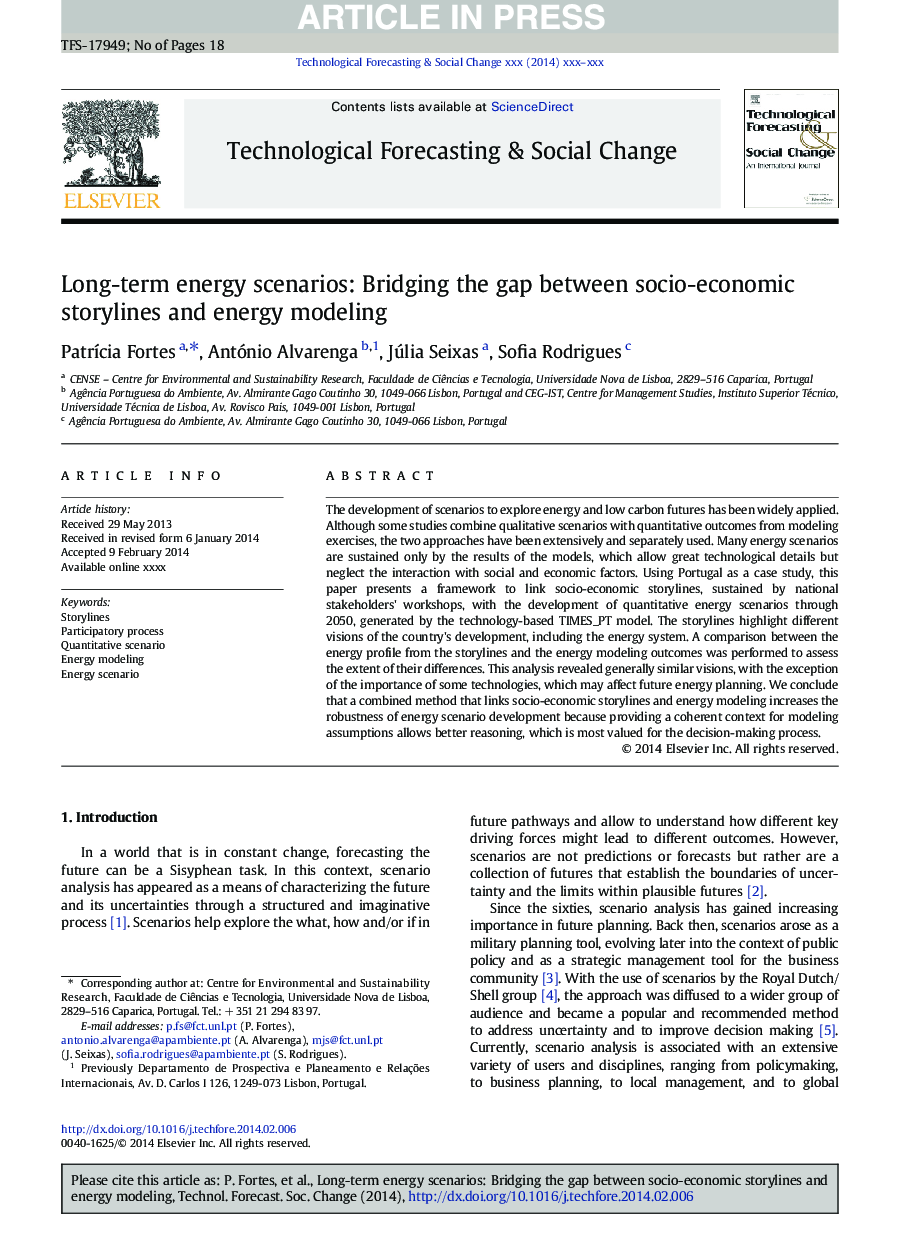| Article ID | Journal | Published Year | Pages | File Type |
|---|---|---|---|---|
| 7256894 | Technological Forecasting and Social Change | 2015 | 18 Pages |
Abstract
The development of scenarios to explore energy and low carbon futures has been widely applied. Although some studies combine qualitative scenarios with quantitative outcomes from modeling exercises, the two approaches have been extensively and separately used. Many energy scenarios are sustained only by the results of the models, which allow great technological details but neglect the interaction with social and economic factors. Using Portugal as a case study, this paper presents a framework to link socio-economic storylines, sustained by national stakeholders' workshops, with the development of quantitative energy scenarios through 2050, generated by the technology-based TIMES_PT model. The storylines highlight different visions of the country's development, including the energy system. A comparison between the energy profile from the storylines and the energy modeling outcomes was performed to assess the extent of their differences. This analysis revealed generally similar visions, with the exception of the importance of some technologies, which may affect future energy planning. We conclude that a combined method that links socio-economic storylines and energy modeling increases the robustness of energy scenario development because providing a coherent context for modeling assumptions allows better reasoning, which is most valued for the decision-making process.
Related Topics
Social Sciences and Humanities
Business, Management and Accounting
Business and International Management
Authors
PatrÃcia Fortes, António Alvarenga, Júlia Seixas, Sofia Rodrigues,
